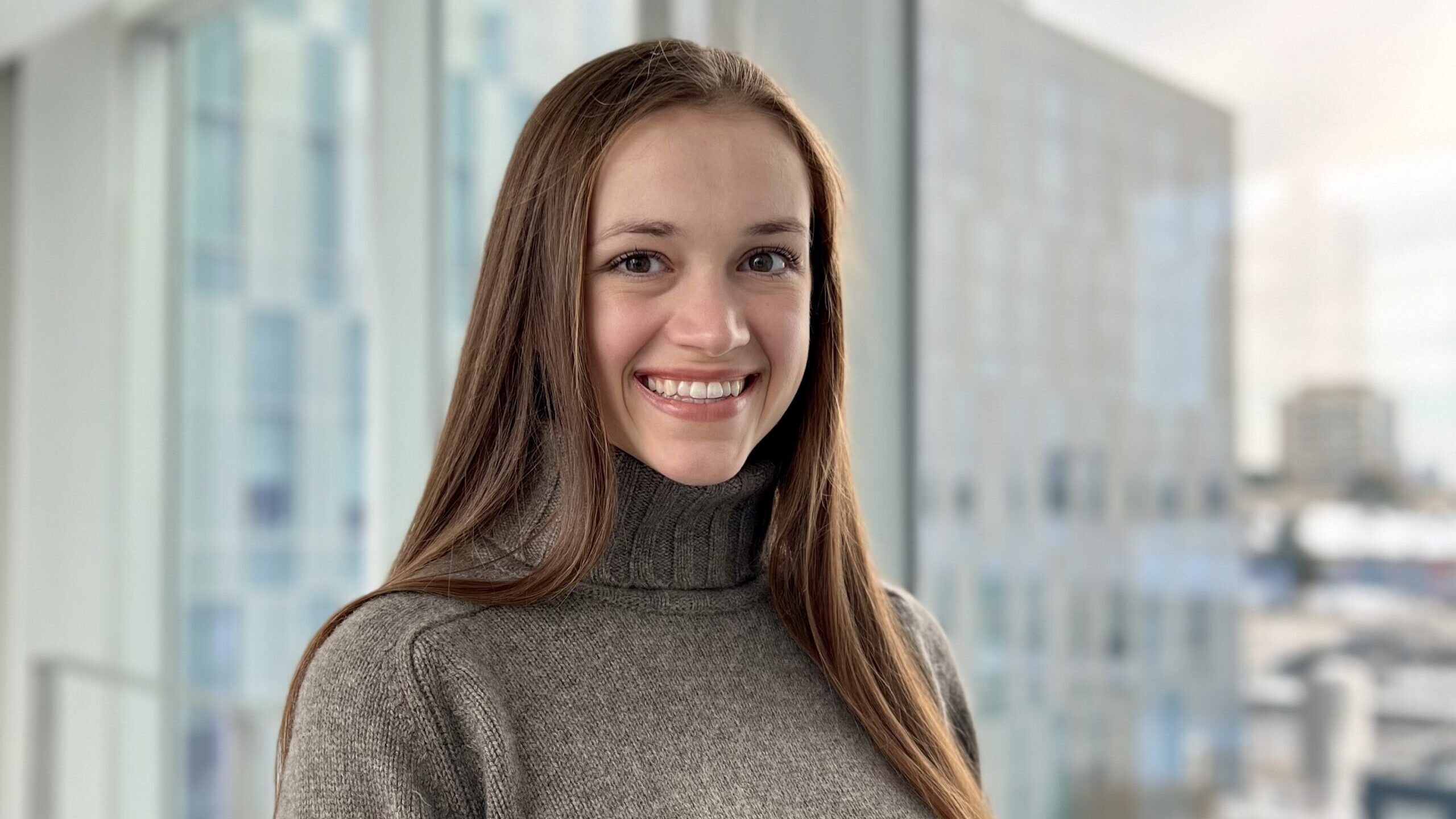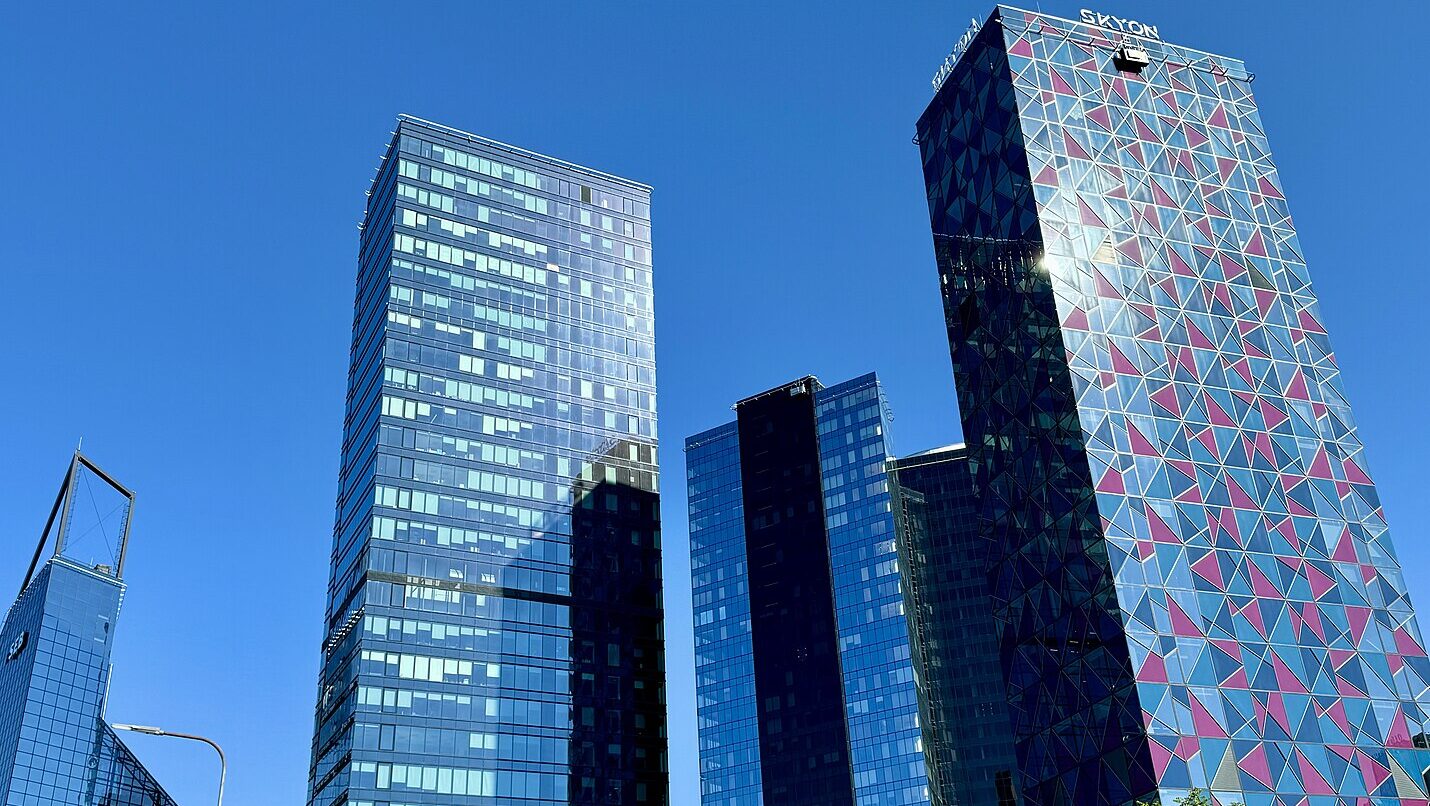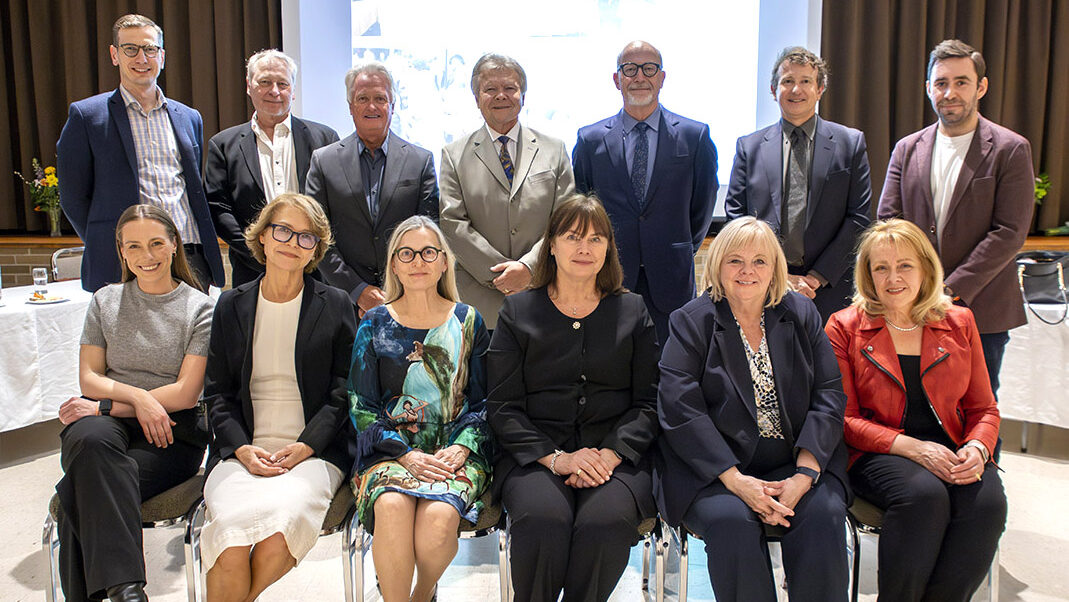Working as an investment banking analyst on RBC’s Power, Utilities, and Infrastructure team, she has much to say about applying transferable skills from other parts of her life—including concise communication and focusing under pressure. Read ahead if you’re a young professional wondering how your skills and interests fit into the professional world:
Between 2017 and 2022, you studied mechanical engineering at the University of Waterloo. Was it always clear that you were going to pursue this as a subject?
Definitely not. I've been interested in math and science for as long as I can remember but I didn't really land on wanting to pursue engineering until some time in grade 11. When I was younger I wanted to be an astronaut, and then an architect, so I suppose mechanical engineering didn't end up being that far off from those dreams!
Obviously I've gone in a different direction now, but my engineering degree helps my technical understanding of the power projects that I come across in my job from a financial perspective. I appreciate the problem solving skills and creative approach to identifying and thinking through problems that it helped me develop.
What was involved in securing the co-ops you worked at during university?
Each one followed a fairly similar process in that I had to prepare a resume and sometimes a cover letter to fill out a bunch of applications.
Preparing for each subsequent interview was a little bit different. I would always look at the company's mission and values and see how they align with my own values, then I would think about what technical or behavioural questions they might ask so that I could prepare my responses. For the engineering co-ops, preparation involved going back over my notes from any courses that were applicable.
For my co-ops at RBC, I went over materials from the Canadian Securities Course that I took, looked at other online resources to learn how to value a company, and stayed up-to-date with news about the stock markets. Finally, I came up with a few questions that I wanted to ask the company during the interview.
What happened during the co-op with Hatch [an infrastructure, energy, and metals company]?
I ended up doing two co-ops with Hatch. I spent most of my time working on two potash mining projects (potash is used in fertilizer and is a huge export industry for Canada). I was lucky to land my very first co-op with Hatch for two main reasons: first, it showed me what a good work culture and environment looks like. Second, they invested in my development and gave me meaningful work that made me feel like I was making a real contribution to the team.
I got to learn some engineering concepts in the summer of my first year that I wouldn't learn in class until third year. During my second co-op, I worked on a different potash mining project and got to spend about a week behind the scenes at Toronto Pearson International Airport to commission a baggage handling system which was very cool to see.
Around this time, you were also involved with ESTO 2019 as the Canadian liaison for the youth organizational committee. How did your Estonian upbringing prepare you for that role?
When I was growing up, my parents made sure that I was exposed to and immersed in Estonian culture. We would speak Estonian at home (it was actually my first language, though my English is considerably stronger these days). I went to lasteaed and eesti kool and attended Jõekääru võrkpalli laager in the summer.
Jõekääru was one of my first experiences with volleyball and where I learned to love the sport. All of this made me appreciate Estonian culture. So when ESTO 2019 rolled around I was very curious to see what the experiences of other väliseestlased were like, especially given the strong Esto community in Toronto.
How did it all unfold, then, that you became a liaison?
I heard about it through my relative, Reet Marten-Sehr, who was encouraging my cousins and I to all take part in it at a family event. Somehow I got into contact with the organizers in Finland and they were happy to have me help out however I could from Canada.
In what ways did your engineering background make it ideal to work at RBC?
I've always been interested in renewable energy; wind and solar use concepts from aerodynamics and heat transfer, respectively, which were two of my favourite areas of study within mechanical engineering. Day to day, even though I don't need a detailed knowledge of the intricacies of these projects, it helps to have a basic technical understanding, even just to recognize some words/concepts in reports that others might need to look up. At an even more fundamental level, I had a strong base in math from engineering that is also helpful when conducting analysis or building a financial model.
How would you define your role?
It can be quite variable, which is one of the things that attracted me to the job. Often, a variety of tasks pop up throughout the day, such that my day doesn't end up looking anything like I thought it would in the morning. As an analyst in investment banking I might be working on a pitch deck on M&A (mergers and acquisitions) opportunities for a client, or benchmarking a company's performance vs its peers to see what its comparative value might be.
I could be researching what wind, solar, nuclear, gas, or coal assets are held by various companies or working on a financial model in Excel to estimate the value of an asset, group of assets, or a whole company. Given the industry I'm working in, I get to look into carbon markets and incentive programs to build renewables in North America. For example, the investment tax credits and production tax credits for renewable power projects in the US Inflation Reduction Act, which is very interesting to me.
Can you explain how RBC’s groups help clients?
We help our clients raise capital to fund their businesses, build new projects, or acquire/merge with another company. We provide strategic advice and/or financing advice that enables our clients to meet their strategic and growth objectives.
What are your aspirations for the future?
Work-wise, I've only really recently started but have enjoyed my year at RBC and have already learned a lot. So I plan to continue with that. On a personal side, I want to get more involved with the Esto community again and would love to sing in Laulupidu one day!
I also love to travel, so I certainly aspire to visit some new countries, perhaps in Asia or Australia, since I have a couple friends living there at the moment.
Finally, what are you most proud of in your life?
Staying true to myself. Some of my oldest friends would say that I haven't changed that much from when I was five and I think that's a testament to being comfortable in my own skin.
(Interview by Vincent Teetsov)
This interview has been edited and condensed.




